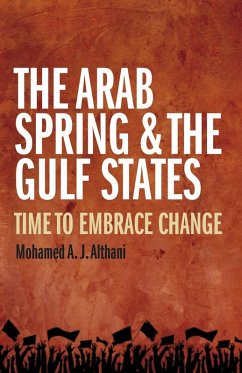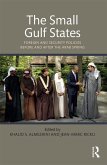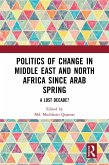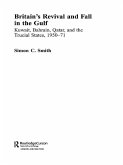The most challenging question today for the citizens of any country in the Gulf region is whether it is heading in the right direction to become a durable, sustainable system, fully supported by its people and capable of being defended from internal and external threats. In The Arab Spring and the Gulf States, Mohamed A. J. Althani, a former minister in the Qatari government, analyses the domestically important areas of demography, security, provision of food and water, and the political and economic systems of the Arab countries at the centre of the turmoil that has spread throughout the region, from Tunisia and Egypt to Sudan and Syria, since early 2011.
As the Arab spring's unprecedented popular uprisings with their demands for freedom and an end to tyranny continue to grip the attention of the world, the author's inside-track knowledge of the Arab ruling elites has acquired a new and compelling urgency. To ensure a stable and prosperous future for their countries, Arab leaders must learn from recent events and accept the need to change. The goal must be greater freedom, greater democracy, greater private sector involvement in the economy, and effective protection of people's rights under the law.
As the Arab spring's unprecedented popular uprisings with their demands for freedom and an end to tyranny continue to grip the attention of the world, the author's inside-track knowledge of the Arab ruling elites has acquired a new and compelling urgency. To ensure a stable and prosperous future for their countries, Arab leaders must learn from recent events and accept the need to change. The goal must be greater freedom, greater democracy, greater private sector involvement in the economy, and effective protection of people's rights under the law.
Dieser Download kann aus rechtlichen Gründen nur mit Rechnungsadresse in A, D ausgeliefert werden.









